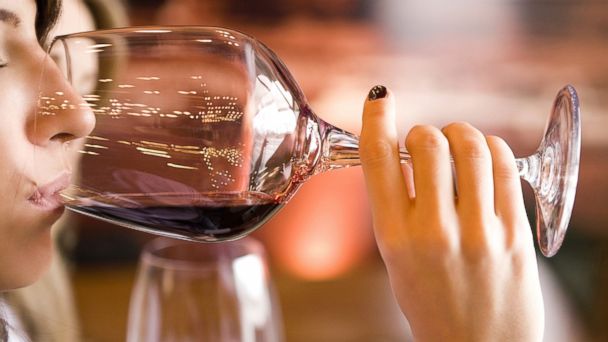Before You Refill That Wine Glass, Ladies, Some Questions to Ponder
ABC News' Amy Robach reports:
Nearly four years ago, Heather King said, she could not wait for the end of her day - and her ritual glasses of wine.
"When I was drinking wine, I had an emotional relationship with it. I used it for stress relief. … I drank nightly," she told ABC News. "I always tried to control myself or wait until 5 p.m., until I was making dinner. I felt like I was having some 'me' time with my wine and it became a comfort to me."
But eventually, the mom of three in Texas started hiding extra pours from her husband.
"I would run the water in the sink so he wouldn't hear the glug, glug, glug of the wine going into the glass," King said. "I think I hid it because I knew it was abnormal [but] I wanted to keep drinking."
Six signs that you might drink too much.
Gabrielle Glaser, who wrote " Her Best Kept Secret: Why Women Drink and How They Regain Control," after she started to evaluate her own drinking habits, suggested that women ask themselves a couple of important questions when it comes to imbibing.
"Are you looking forward to this a little too much? Is this medication? Is this first aid?" Glaser said. "Or is it something you are going to sit down and savor and enjoy? Are you going to gulp it down or are you going to sip it over time and sip it socially? … Do you have to hide it? Have you tried repeatedly to set limits on yourself and set controls?"
Glaser, who said she'd found herself drinking two-thirds of a bottle of wine a night during a stressful period in her life, said it was very easy to cross a line.
"It's not that you set out to medicate yourself, but it tastes good," she said. "It's fun."
One in eight women binge-drink.
But there's also a price. Because women's bodies - with a higher percentage of fat and lower water content - process alcohol differently than men's do, women not only get drunk faster but longer-term health effects like liver damage show up sooner, as well, according to the Substance Abuse and Mental Health Services Administration.
Studies about the positive impact that a glass of wine can have on heart disease apply to moderate drinkers. And a glass of wine means just a four-ounce serving per day for U.S. women, according to the American Heart Association.
In addition, according to Justice Department statistics, DUI arrests among women have gone up almost 30 percent in nine years while men's rates have decreased. And the number of women age 45-54 seeking treatment for alcohol abuse has tripled in 15 years, according to SAMHSA.
King, who quit drinking in January 2010, said it was a sneaky addiction. She sought treatment in a support group and also shares her experiences with other women and blogs at The Extraordinary Ordinary.
"It's subtle and it's slow a lot of time, adding a glass here and there," King said.

Getty Images
"I am seriously grateful for my sobriety. I get to be a sober mom for my kids. Not everything in the evening is happening in a blur," she said. "I get to just be free of the obsession I had with wine. … I have a hope that women will be able to talk about it more and more."
For more information, see the links below:
- American Heart Association: Alcohol and Heart Disease
- NIAAA: Alcohol: A Women's Health Issue
- SAMHSA: Effects of Alcohol on Women
- Rethinking Drinking
ABC News' Julia Bain contributed to this story.